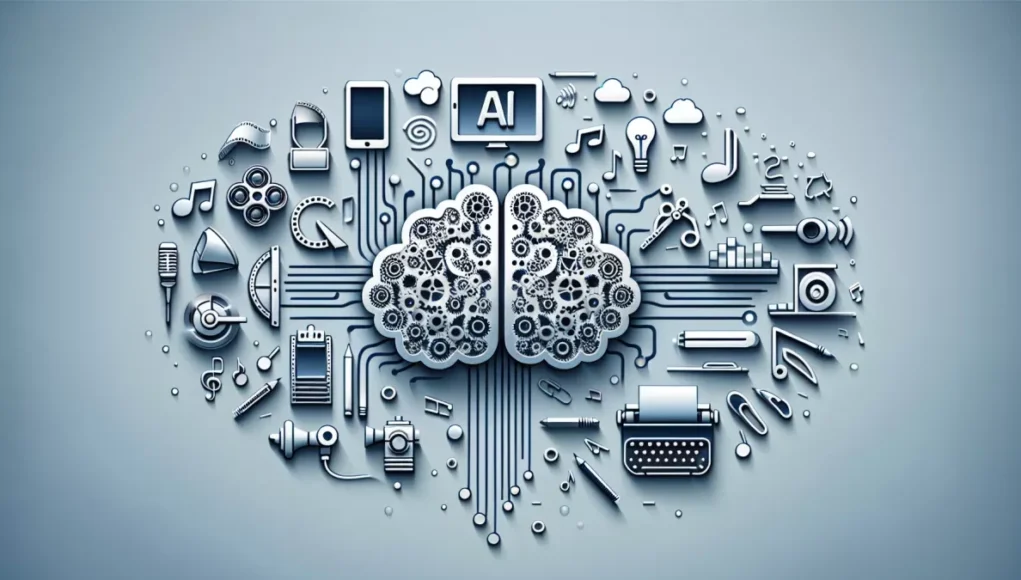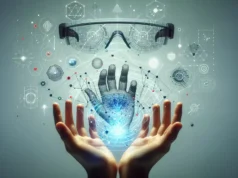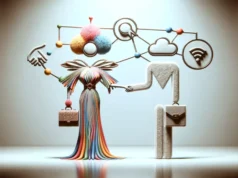In the ever-evolving realm of digital advancements and technological innovation, an insurgence of Artificial Intelligence (AI) is effectuating a swift, transformative change in content production. This change is not only revolutionizing the way content is produced, delivered and engaged with, but also reshaping the entire business model and standards of traditional publishing.
Integrating AI into content production is not an entirely new concept. Software technologies constituting machine learning and language processing capabilities have been leveraged to produce sports recaps, financial news and weather reports for some years now. The Associated Press, for instance, initiated the use of Automated Insights software, Wordsmith, for generating news reports back in 2012. What’s fresh is the profound expansion and improvement we’re witnessing in the function and purview of AI in content creation and management.
Content creation, a multifaceted process involving ideation, creation, design, production, and distribution, has been accelerated and amplified through AI’s capabilities. The integration of AI into this process unburdens creators from repetitive, mundane tasks, leaving them with more time and mental space for imaginative, creative pursuits. By automating content production, AI facilitates efficient content customization according to business model, audience polarity, and platform suitability.
One of the standout attributes of AI’s utility in content production is its potential to deliver personalized content. The principle of “one-size-fits-all” has long been cast aside in marketing strategy, but AI algorithms take personalization a step further. They are adept at analyzing a user’s browsing behavior, locating patterns, and thus delivering personalized content recommendations. For instance, Netflix’s AI algorithms analyze user viewing habits to recommend personalized viewing choices, significantly enhancing user experience.
Furthermore, AI-powered chatbots and virtual assistants, like Siri and Alexa, are providing a paradigm shift in content accessibility and interaction. These virtual agents can process natural language, interpret semantic meaning, and provide accurate results or responses, making content consumption easier and interactive. Gartner, the world’s leading research and advisory firm, predicts that by 2021, 15% of all customer service interactions will be handled solely by AI – an impressive 400% rise from 2017 figures.
AI is also revolutionizing content marketing strategies by granting marketers insights into consumer behavior and preferences that were previously unattainable. As the algorithms simultaneously gather and analyze vast amounts of data, marketers can use these insights to craft more precise and effective content strategies.
Nevertheless, despite the paradigm shift AI brings in the content creation domain, apprehensions persist. The fear that as AI continues to progress, human creators might become redundant is a concern expressed by many. However, experts argue that while AI is highly efficient at automating workflow, the human touch in story curation, empathetic storytelling, and creative exploration remain unmatched.
The marriage between AI and content production is here to stay and the fusion promises a future replete with innovation and spark. Oren Etzioni, CEO of the Allen Institute for AI, shares the same optimistic view: “Humanity is about to transition from reading news to viewing AI-created, data-driven news summaries.” AI technology has the potential to bring a level of efficiency, personalization, interactivity, and insight never before seen in content production. As we move further into the digital age, it will be fascinating to see how this relationship between AI and content creation, already transformative, evolves further.
Sources:
1. “Artificial Intelligence – The Revolution Hasn’t Happened Yet.” Harvard Business Review. 2018.
2. “Artificial Intelligence: The Future of Content Creation.” Dalet. 2021.
3. “Artificial Intelligence and Content Marketing in the next decade.” Martech Series. 2020.
4. “Welcome to a future of AI-driven storytelling.” The Next Web. 2020.
5. “Predicts 2018: Artificial Intelligence.” Gartner. 2018.
6. “Artificial Intelligence round up: How AI can generate feedback.” Information Age. 2020.
7. “How AP uses automation.” Associated Press. 2017.
8. “Alexa, Siri, Cortana: The problem with all-female digital assistants.” the Guardian. 2017.






